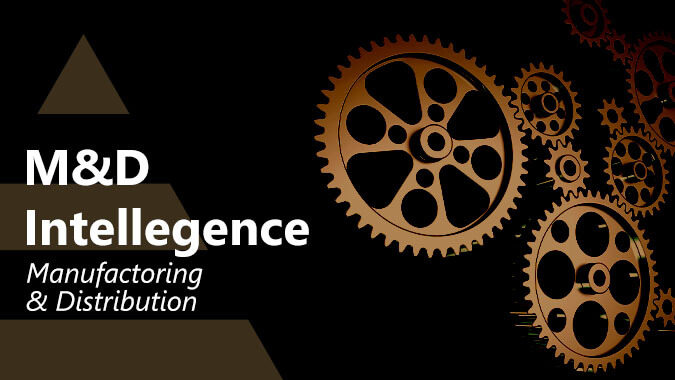
A Manufacturer’s Perspective on the Pandemic
- Published
- Jun 4, 2020
- Topics
- Share
A conversation with Thomaz Gruber, Senior Vice President of Operations and Supply Chain for Sabert Corporation. Sabert is both a global manufacturer of food packaging products and an EisnerAmper client. Thomaz talks about how COVID-19 has impacted Sabert and the business lessons learned.
Transcript
Dave Plaskow: Hello and welcome to the EisnerAmper podcast series. I'm your host, Dave Plaskow, and with me today is Thomaz Gruber, Senior Vice President of Operations and Supply Chain from Sabert Corporation, an EisnerAmper client in the manufacturing sector. Today, Thomaz is sharing how COVID-19 has impacted his company and his industry. Hi Thomaz, thanks for being with me today.
Thomaz Gruber: Hi Dave, glad to be here.
DP: So tell us a little bit about Sabert.
TG: Sabert Corporation is a privately held company founded in 1983. It's a leading global manufacturer of innovative food packaging products and solutions. We design, we manufacture, and we distribute a wide variety of packaging solutions for food distributors, for restaurants, for caterers, grocery stores, and also national food chains. Our products, they're either made from plastics, paperboard, or molded fiber. Our revenue is about $800 million annually, and we have approximately 3000 employees globally, with operations in North America, Europe, and China.
DP:Okay, great. So, tell our listeners how COVID-19 changed your business and your industry for both the short-term and the long-term?
TG:Well, Dave, it's safe to say that COVID-19 has changed all businesses and industries across the board. For us here at Sabert, we have remained open throughout the pandemic as we are considered an essential business. Our food packaging products are needed now more than ever to help our customers continue to feed America. Now, obviously operating our plants and warehouses during this challenging time is not easy. So protecting the health and wellness of our employees has always been our top priority. So, what we needed to do was to adjust quickly.
As a result, we implemented a number of safety measures across all our facilities to properly protect our workforce from the spread of this virus. Some of these measures did include temperature taking for all employees coming in every day, every shift, we implemented social distancing, including floor markings and plexiglass shields. The use of masks is mandatory as well as other PPE and we added additional extensive cleaning and sanitation on common areas. We also did shift staggering and relentless communication on how to avoid spreading the virus, and not just at work, but also at home.
Now, in terms of the industry, the food service industry has been hit hard. The statewide closures, they forced many restaurants' owners to temporarily close or to adopt new business models. So, in the short term, there has been a sizable negative impact on our business in terms of revenue. However, I can tell you that we are cautiously optimistic it will pick up in the second half of the year, as we're already seeing some early signs of this as states are slowly beginning to reopen their economies and demand has slowly picked up.
Now in the long-term, it is hard to tell how this pandemic will affect the industry as a whole. Our customers are adjusting to their new realities and as they do that, we'll continue to work closely with each one of them to ensure we provide the perfect solution for their needs, whether it's a takeout or delivery package or a tamper-resistant solution.
DP:Okay, good. So it really seems like this pandemic has hit every company from the smallest, family-owned business to the largest corporation. In fact, I was just reading about the Hertz rental car declaring bankruptcy. So really, a lot of these companies need a helping hand, so to speak, to keep the lights on. What types of advice are you seeking from your business advisors, like your accountants, your bankers, your attorneys? And what kind of impact has that advice had on your operations?
TG:Great question, Dave. With the passing of the CARES Act, we wanted to optimize our opportunities. This was an area where we sought outside advice, especially to our accountants and attorneys, and guidance on how these new programs could benefit our business and our workforce. And then secondly, we are continuously looking on all possible industry scenarios and their corresponding financial impact on all of us.
So, this is another area where we have leveraged our relationships with our financial and banking groups to look at industry data and trends. They gather a lot of online data and that better informs us on our internal models and business planning. That assistance has helped us give us a very comprehensive view of the overall industry picture for us.
DP:Okay. So, now in your sector, Thomaz, I'm guessing that Sabert closely looks at data trends for the different segments, like supermarket versus restaurant and so forth. What does the data say? What trends are you seeing?
TG:Our market team is always monitoring the data and industry trends. So, I'll give you some examples. In the supermarket segment, we saw a big spike in late March with the beginning of the state-imposed closings and probably some panic buying was happening. Then, we saw a corresponding decline in April. Moving forward, I tell you, it's hard to tell what will happen in this segment, as consumers are adjusting to this new reality. But I can share with you that some supermarket chains informed us that Memorial Day Weekend was kind of back to normal, although I don't think that's a guarantee that it's sustainable.
Another example is the restaurant segments. We have seen a 60 to an 80% decline overall in late March and early April. This was obviously a big shock to all of them. However, what we have seen also is that restaurants that already had some pretty well-defined delivery and takeout systems in place saw much, much less of an impact. They have been able to weather this storm slightly better than others. Now, despite this decline in restaurant visitation, the recent studies have shown that at least 67% of Americans will still dine in at restaurants once states fully open as long as they see more safety measures in place.
DP:Yeah, I think I read yesterday, in fact, that New Jersey where we are, is allowing outdoor dining as of June 15th. So, that's a welcomed development. So, Thomaz, certainly there's no real silver lining in all of this crisis, but tell us what Sabert has learned from this. Has there been new ways of doing business or new processes, valuable business lessons learned, re-calibrate and innovative new ways of doing business?
TG:This was a crisis in every sense of the word. So I think we can all agree that no one was really prepared for the severity of this pandemic. But luckily, we were very proactive in our response. Prioritizing open and clear communication with our employees was key. The business lesson was to swiftly go into crisis mode. Early on, we established the COVID-19 task force that is still meeting daily. And our leadership team also meets daily to ensure we're acting quickly and put preventative safety measures in place for all our employees. You have to act fast and adapt constantly, as the situation is very, very dynamic.
Now, we are fortunate to have such an incredible organization. So, many of our employees have gone above and beyond their daily duties to help local communities during this pandemic. Just one of several examples, we had several employees contribute their time and personal equipment to make nearly 1000 face shields that were donated to local healthcare employees working on the front lines.
Additionally, we, as a company, have been donating cases of products to local food banks, helping them safely feed families in need. It is very, very encouraging to see how both our workforce and our organization as a whole has stepped up, like so many other companies are doing. So while we feel the effects of this pandemic for quite some time, I'm sure we will never forget the great sense of community that has come out of this crisis. It's really a reminder that we are all in this together, Dave.
DP:Well, Thomaz, thanks for giving the perspective of one of EisnerAmper's valued clients, and here's to better days ahead.
TG:You're welcome. Thanks for having me, Dave.
DP:And thank you for listening to the EisnerAmper podcast series. Visit eisneramper.com for more information on this and a host of other topics. And join us for our next EisnerAmper podcast, when we get down to business.
Also Available On
Contact EisnerAmper
If you have any questions, we'd like to hear from you.
Receive the latest business insights, analysis, and perspectives from EisnerAmper professionals.











